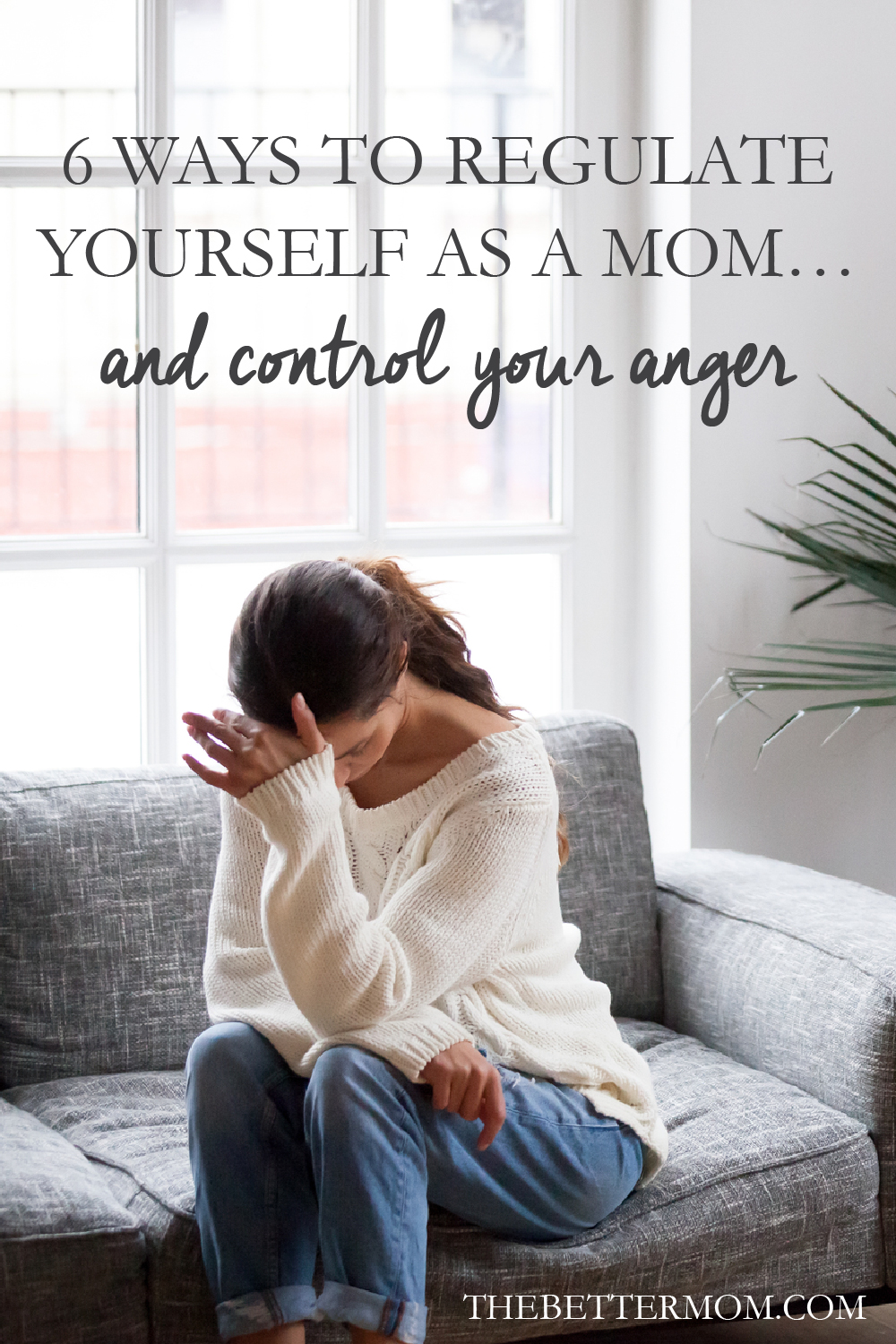6 Ways to Regulate Yourself as a Mom … and Control Your Anger
As a mom, I can tell when I’m out of sorts. Sometimes I don’t stress about the sticky floor or the grumbling kids. And then there are days when everything seems wrong, and deep down I know the “wrong” is something inside me. Everything makes me angry. Have you ever had days like that?
The problem isn’t my life, it’s my emotional self-regulation. An easy way to explain emotional self-regulation is the ability to calm yourself down.
My emotions often get out of check when I’m tired or overwhelmed. Adopting seven kids has made both common. Yet here are some ways I’ve learned to self-regulate:
1. I must get perspective. I’ve learned to step back from a situation and looking at it objectively. For example, Will it really matter—in light of eternity—that my sink is full of dishes today? Bible reading and prayer helps me gain perspective the most. The quiet of the day tends my soul, and I’m reminded that this day’s troubles are small compared to God’s big plans.
2. I must understand I am an emotional being. It’s okay to have emotions. There are times we should be sad or frustrated. Anger even makes sense at times, but acting out on our emotions in negative ways is never right.
When I’m in the middle of a hard situation, such as dealing with an angry kid, my emotions will naturally react. My heart will pound. My jaw will tighten. Anger becomes a physical response, but it still doesn’t mean I need to act out on it. I’ve learned to tell myself, “My body is responding, but I still have control. I don’t have to be impulsive. I don’t have to act angry.”
3. I must care for myself well. Sleep, exercise, and chatting with a friend on the phone helps me to regulate my emotions. Reading a good book, and spending time with someone who makes me laugh, does the same. My husband and I have discovered date nights are necessary for mutual self-regulation.
4. I must understand what I’m really angry about. Sometimes what I get angry about isn’t the real problem. I may be frustrated with my sassy pre-teen, but if I pause and think about it the real emotion may be an unexpected bill or a disagreement with my neighbor. By understanding and labeling true emotions I can choose how to respond in all areas of my life.
5. I must give myself boundaries. Before the angry situation comes, I must give myself a goal. “I will not speak unkind words. I will not raise my voice. I will leave the situation until I calm down.”
6. I must give myself time and space to calm down—to regulate. When I feel like responding with anger and yelling, I remind myself to turn and walk away. Sometimes we think walking away is displaying weakness, but we’re actually teaching our children how to respond to overwhelming emotions. And if you’re not physically able to leave the situation, mentally pull yourself back. Say a quick prayer and remind yourself, “This isn’t an emergency. I don’t need to act rashly. I will win this battle when I stay calm.”
All these ways have helped me to regulate. I don’t always get it perfect, but I do find myself doing much better … even on tiring or overwhelming days.
Tricia Goyer
Share this post:








